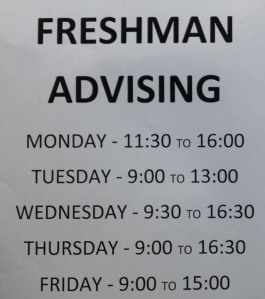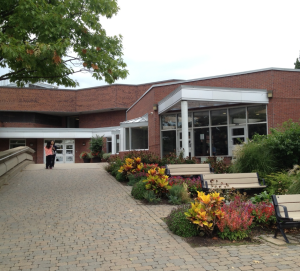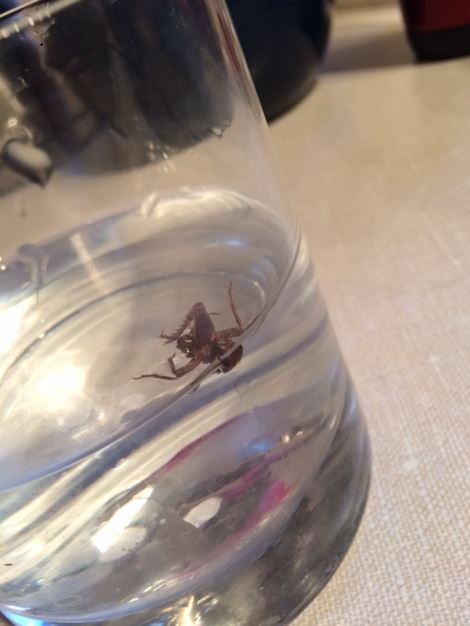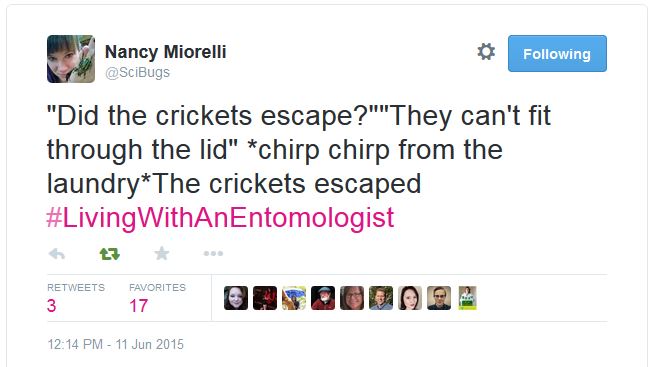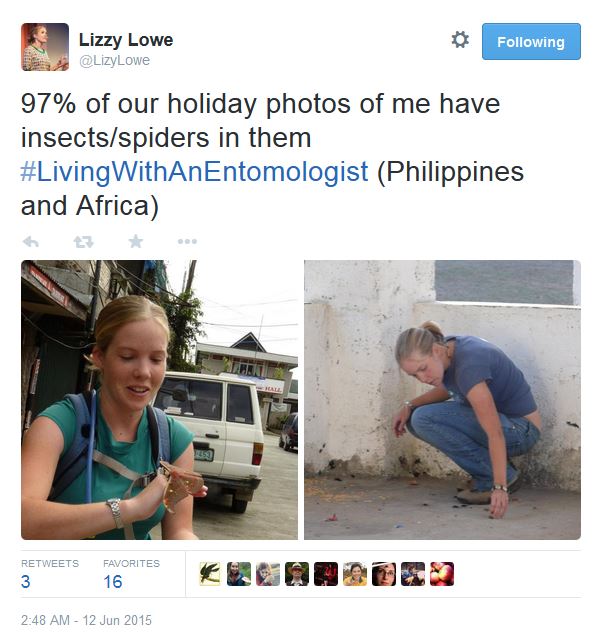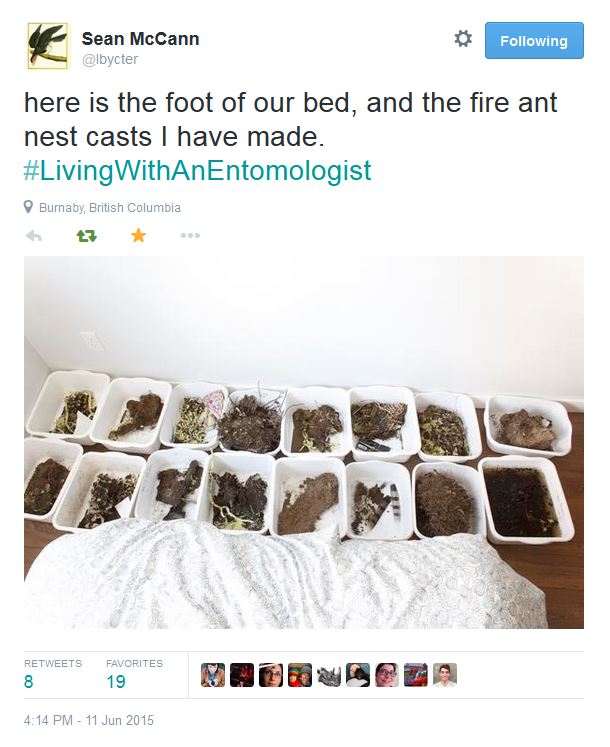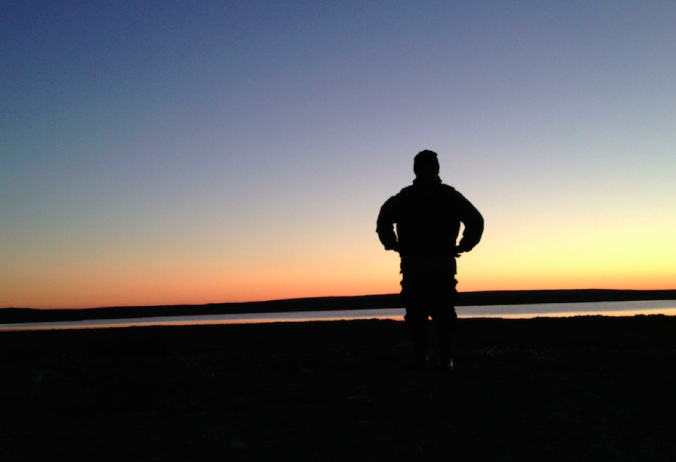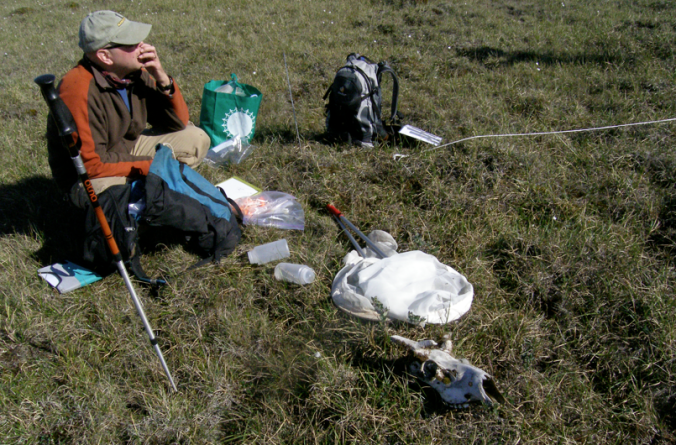The talented graduate student (and all-around great guy) Morgan Jackson recently posted a question on twitter, asking for advice on the art of delegation, from an Academic perspective. This question really struck me as important, for graduate students who are pursuing academic careers and for tenure-track academics. The reason why is pretty obvious: without learning how to delegate, burnout is inevitable.
To delegate means to entrust (a task or responsibility) to another person, typically one who is less senior than oneself.
The issue of how to delegate is, of course, common and widespread in the business community but academia is a bit peculiar. Let me explain my perspective: In some cases, delegation is straightforward, especially if a staff member is paid to do a particular job and if roles and responsibilities are well defined. Although these kinds of hierarchies exist in Universities and research institutes, these environments often include a high amount of volunteerism and some aspects of Universities (and research more generally) are run on collegiality and community-minded thinking. Scientific societies would disintegrate if people didn’t share the work-load, and if society president’s weren’t able to delegate work to (often unpaid!) treasurers, web-masters and scholarship committees. Universities wouldn’t operate effectively if Professors didn’t agree to sit on committees, often delegated by the Chairperson. Research laboratories would be unhappy places if some of the chores weren’t delegated, from making sure coffee supplies are well stocked, to ordering supplies - sometimes a paid technician does this work, but not always….
Academia is also full of “reverse hierarchies” - sometimes a more junior person has to ask a more senior person do take on a responsibility or task - this happens all the time: from seeking help putting together a symposium at a conference, to getting people to agree to sit on an editorial board. Bottom line: there are COUNTLESS tasks in Academia that depend on delegation and often the tasks, roles and responsibilities don’t fit neatly into one person’s formal (paid) job description, and often the ‘senior to junior’ hierarchy isn’t straightforward .
And perhaps the most important point of all…. one of the biggest obstacles to delegation is the fact that many Academics are perfectionists. Academics, by in large, like to be in control of ALL THE THINGS, from preparing a CV, to setting up committee meetings, to driving a car to a field site. Professors, in general, have got to their position because of their ability to DO ALL THE THINGS and do them well. You can’t publish good papers without knowing how to write; you can’t publish papers without solid research funding, so you have to perfect the art of writing grants; you can’t get a post-doc position of tenure-track position without being able to put together a top-notch presentation and deliver it with the skills of a seasoned orator; you can’t get good teaching scores without investing time and energy into perfecting Powerpoint slides and learning the content…. etc., etc., etc.

However, as Peter Adler wrote over at Dynamic Ecology recently, it doesn’t get any easier. In fact, the job gets more demanding on time, expectations on productivity remain, teaching can be time-intensive, and the Academics are expected to do some administration. From a personal perspective, I am far busier now than I have ever been in the past (but I try not to complain about it). Good time management skills are not enough to get everything done. What’s needed is an ability to delegate. Again, without effective delegation, burnout is inevitable.
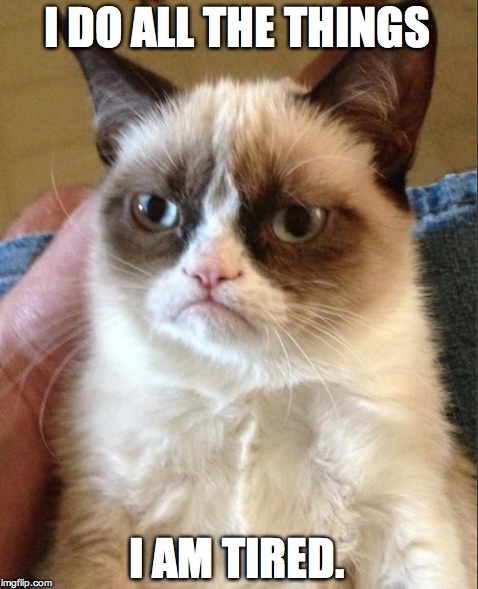
With that backdrop, how do you delegate?
1) Know the players. Delegation requires knowing your community and knowing the skills and abilities of people within your community, whether it be a graduate student secretary, the treasurer of a scientific society, or a colleague down the hall. Before you can even think of delegation, realize that delegating any kind of work has a real, profound affect on somebody and on how they spend their time. It’s about people, so you must get to know these people! This means networking, whether it be around a coffee maker at work, over twitter, or attending a poster session at a conference. Pay close attention to everyone you interact with, listen to them, learn their passions, learn what they like to spend their time doing.
2) Play nice. In addition to knowing your community, don’t be a jerk to your community! I mentioned Morgan Jackson at the start of this post; he’s an example of someone who is always willing to lend a hand, say a kind word, and be a team player. He plays nice. I am always happy to help Morgan in return, even though I am (in academic terms) his ‘senior’. This seems SO obvious, but I also know that not everyone plays nice. Some people are selfish, ignore those they deem as ‘inferior’, and require you to grovel to get an answer to an email. It’s a tough world, and there are big personalities in Academia, and everyone has their own agendas. This can be difficult to navigate, and politics in Academia can be fierce. However, a strategy that always wins is to play nice. Be collegial, polite, and try not to burn bridges. It’s hard to delegate if there’s nobody left that respects you.
3) Prioritize. Delegation is an art, and one of the trickiest parts is learning what to delegate and what to keep on your own plate. It’s also important to avoid delegating everything. Some things are too close to your own expertise, part of your job description and/or are tasks that you just love too much to give up. However, some tasks can be shared effectively among others, and can move away from your to-do list. Write down ALL that you have to do, and put a star beside those that you cannot see anyone else doing (ahem, if there are stars next to all of the tasks, you will burn out. Start again, and see point #6, below). If your are lead-author on a paper, you sure ought to read over those final page proofs! However, maybe your co-author could do a final check over all references, especially if s/he hasn’t contributed as much to the paper..?
4) Have a vision (& communicate it!). Delegation will not be successful if those you delegate to are not sure what role they are playing in the ‘big picture’. No matter the size of the task, it is being done for some reason. Having someone give a guest lecture is pretty obvious: the guest lecture helps achieve the learning objectives of the class and gives students a new perspective on the content. Sure, that makes sense. But did you communicate that to both the students and the person giving the lecture? EVERYONE involved needs to understand the ‘why’ behind the jobs and tasks at hand. This means effective delegation requires carefully assessing why tasks are being done, and working to communicate this. If people are part of a vision (even one they may not 100% agree with), it’s a lot easier to get them to take part.
5) Ask and Explain. Sometimes it’s as easy as asking (nicely). This goes much smoother if you have a vision and that you have communicated this vision, as mentioned above. In addition to asking, it’s essential that the tasks you are delegating are clearly defined. A volunteer might agree to sort specimens if you ask them. However, a simple ask may result the job getting done, but perhaps with a lot of mistakes. Asking, and then giving someone a 1 hour tutorial and access to resources on-line will result in fewer errors. Preparing a living document that explains your protocols for sorting and letting them refine and improve the document is even better! All tasks, regardless of their size, need to be defined. Just because you think it’s easy to do, straightforward, and simple doesn’t mean everyone else will.
6) Let go. (TRUST) I have noticed that many Academics (myself included!) don’t delegate because they say “Ah heck, I already know how to do that, it’ll take too much time to explain or show them how to do it…” or “I’ll do that myself, it’ll be faster“. There are a few problems here. First, if you say this about everything, burnout is inevitable. Second, as an Academic / Researchers/ Post-doc, etc, you are responsible for sharing knowledge and training others, and this takes time. In the time it takes you to ‘just do the task’ five times, you could have trained someone else. Third, this may indicate that you don’t ‘trust’ anyone else to do the job. You must let go of this! Be a perfectionist at the right times, but let some things go. There are errors in everything we do, so sharing them around is fine, for some tasks. Remember, you have developed a network, you are team player, and you have shared your visions and prioritized, and defined the tasks. It’s time to let go.

7) Verify. Letting go does not mean letting go forever. There must be follow-up and discussion to ensure the job is done well. Accountability is key. Review the job, first on your own, and then with the person to whom the work was delegated. You must provide constructive feedback, but also listen to ideas, complaints and comments. This will help you redefine the task in the future, and they will feel more responsibility and ownership over the task. This also starts the amazing process of creating someone who can later become a delegator of tasks. This is what mentoring is all about… in your laboratory or classroom, you want people to walk away with confidence in what they do, and with an ability to take their skills sets and pass them along to others.
8) Reward. It’s absolutely essential that you reward those to whom you have entrusted a task or responsibility. If people do not feel their work is valued, and that they have not contributed in an important way, you have failed in effective delegation. If you reward, your vision will grow, your team will respect you, your (positive) network will increase. Rewards can be small or big: A few kind words, a big “THANK YOU”, some homemade cookies, a promotion, or a letter of reference. Here’s an example: I often get graduate students to give guest lectures in my courses. This saves me time, and helps me out when I’m overwhelmed. When students do these lectures, I offer to write them letters or recommendation specifically about their abilities in the classroom. Most take me up on this, and it’s a kind of reward. I also ensure to pass along kind words from the students in the class.
9) Get some training. The art of delegation is seldom on an Academic’s CV. It’s often learned by trial and error, and sometimes never really perfected. Like any skill, training is required. In some cases, informal training is enough. This can be via sitting on committees in scientific societies, learning from effective mentors, or just practicing. However, I think that most Academics are not very good at delegation, and more formal training is required. This could be in the form of workshops, perhaps for all incoming Profs at a University, or as part of a research conference. I would like to see these kinds of ‘management’ skills as part of EVERY graduate student’s program, as perhaps part of the seminar/course work often required during a graduate degree. WE MUST DELEGATE ergo WE MUST HAVE TRAINING.
10) Be a leader. Don’t shy away from leadership. Everything mentioned above is about leadership. Professors are leaders, perhaps a leader in front of the classroom, as a research leader within your institution, a leading expert in an op-ed piece, or a leader on a committee about academic programs. Effective leaders are effective at delegation; in fact, I might argue it’s impossible to be a leader without being effective at delegation. Behind every good leader is an even better team. It’s so cliché, but also so very true.
In sum, delegation is about empowerment and leadership. It’s about giving someone else ‘ownership’ over a task that is part of something bigger. Delegation will help you work on things that YOU need to work on, and help you avoid burnout. It’s a required skill for success in Academia.
(BIG thanks to twitter-folks to took part in the conversation about delegation, especially Morgan, Terry, Chris, Staffan, and others)
